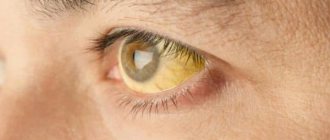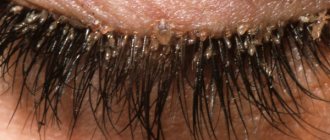More about nightmares
Nightmares can be defined as long, complex dreams that cause symptoms of anxiety, fear and sadness associated with negative emotions. During a nightmare, a person may wake up from a perceived danger. Nightmares occur during REM sleep and occur late at night. After a nightmare, it is usually difficult for a person to fall asleep.
Nightmares are common in children. They usually begin to appear between the ages of 3 and 6 years, and then gradually decrease in number by age 10. However, sometimes they can last a lifetime.
Photo by David Clarke on Unsplash
About 50% of adults experience occasional nightmares. The causes of nightmares can be unpleasant situations, injuries, lack of sleep, irregular sleep schedules, and jet lag. About 1% of adults who experience frequent nightmares seek professional help. Research has shown that women have more nightmares than men.
Unless nightmares happen every night or interfere with our daily lives, there is no reason to worry. However, when they occur with a certain frequency, disrupt sleep, cause insomnia, anxiety, fear of going to bed or cognitive problems during the day, they may be considered a mental disorder. Nightmares have no specific interpretation, but they can be a symptom of something that is bothering or frightening us.
Causes of nightmares
Nightmares can be caused by stress, eating too much before bed, or watching a horror movie. A recurring bad dream is usually associated with some kind of anxiety. Here are the most common causes of nightmares:
- A negative, stressful or traumatic life experience, such as the death of a loved one.
- Stress at work or in the family.
- Watching a horror movie or reading a scary book.
- Heavy food before bed.
- Alcohol or drug abuse.
- Certain medications that affect the hormones or neurotransmitters that regulate REM sleep.
- Sudden cessation of alcohol, drug or medication use.
- Recurring bad dreams may also be a sign.
- Disturbed breathing during sleep (sleep apnea).
- Post-traumatic stress disorder has been identified as a leading cause of nightmares. People with it again and again experience the feeling of fear and horror of a traumatic event. A study found that 80% of people with this condition report regular nightmares.
- Sleep disturbance.
- Depression or anxiety.
Nightmares concept
Nightmares are the product of experienced or hidden emotions, anxieties, as well as mental reactions to any events.
Sometimes they are prophetic, warning of approaching danger, but in most cases such dreams do not carry a deep meaning, but personify feelings and experiences that the dreamer is afraid to let out.
Symptoms and signs
Signs of sleep disturbance include the following:
- long time to fall asleep;
- waking up more than once a night;
- anxiety, horror, excited state after waking up;
- rapid breathing and pulse, jumping out of bed, screaming, crying, movements of arms and legs in sleep, etc.
Effect on the body
Nightmares often have a negative impact on a person’s emotional state. They can ruin your mood, reduce productivity, and cause panic and inexplicable anxiety. In addition, poor quality sleep reduces concentration, causes loss of vitality and apathy, and the release of adrenaline significantly depletes energy reserves.
Bad dreams can ruin your mood.
It is often difficult to fall asleep the next day after nightmares, as difficult memories leave their mark.
Constant night terrors can provoke chronic lack of sleep, which will negatively affect the state of the psyche, causing causeless anxiety and even phobia.
However, such dreams also have a positive side, since thanks to them a person experiences in a dream those negative emotions and scenarios for the development of events that for some reason he cannot live in reality. This gives psychological release.
The appearance of nightmares warns of problems that the dreamer is hiding from himself, gives him a hint about further actions, and also warns of approaching danger. Thanks to this, he has the opportunity to prevent negative future events.
Risk factors
The causes of nightmares can be:
Severe stress is the cause of nightmares.
- Severe stress, worries throughout the day. This activates the action of the cerebral cortex, preventing you from relaxing and switching attention to more pleasant emotions.
- Eating before bedtime, containing heavy foods, drinks that stimulate the nervous system (tea, coffee, chocolate, energy drinks). This complicates the process of falling asleep and worsens the quality of sleep.
- Taking medications, antidepressants, sedatives, alcohol.
- Watching horror films, action films, thrillers.
- Reading literature of exciting content.
- Fever, painful condition.
- Stressful situations experienced the day before: conflicts, exams, separation, etc.
- Sleep apnea, narcolepsy.
Nightmares do not pose a threat to health if they occur rarely. Otherwise, they cannot be ignored. You need to immediately contact a specialist to identify the cause and eliminate it.
Most common nightmares
Some nightmares are repeated in different people, for example:
- I'm being pursued by someone who could kill you.
- I'm naked among a lot of people.
- I have to take an exam, but I'm not ready for it.
- I'm falling from a height.
- I'm in a car that has lost control.
- I am late for an important meeting or event.
- My teeth are falling out.
- I offend my loved one.
- I lost a loved one.
To identify the problem causing nightmares, it is necessary to undergo therapy with a specialist.
How to deal with nightmares
Set a schedule
Go to bed at the same time, especially on weekends. Changing your schedule can cause insomnia. Remember, getting a lot of sleep on the weekends does not compensate for lost sleep during the work week. It is best to sleep 7-9 hours every day.
Exercises
Exercising for 30 minutes every day helps people sleep better. But try not to exercise too hard before bed, which can also harm you.
Avoid caffeine, nicotine and alcohol
Avoid drinking stimulant drinks that contain caffeine or other stimulants (coffee, energy drinks, tea, high-sugar foods). Smokers tend to sleep lightly and get up early in the morning due to their nicotine needs, so the best thing you can do for your health is to quit smoking. Alcohol also has a negative effect on sleep.
Learn to relax
Nightmares can occur due to anxiety and stress. Relaxation techniques can help reduce anxiety, also try to spend more time with friends and family, and pick up a hobby that gives you pleasure.
Good sleep hygiene
- Keep the room at a comfortable temperature, neither hot nor cold.
- Use a bed for sleeping, not a sofa or something similar.
- If you can't sleep, read a book.
- Don't eat 2 hours before bedtime.
Consult a psychologist
If you have experienced any trauma that is affecting you in other areas of your life, please contact a mental health professional. Talking about what's on your mind can help you manage your past or present.
Why do you have nightmares and insomnia after binge drinking?
Ethanol suppresses brain function and disrupts the production of adenosine and melatonin , chemicals responsible for healthy sleep. Adenosine stimulates sleep. When drinking alcohol, its concentration increases and the body receives a signal that the energy has run out and it’s time for the cells to recover. That is, you need to sleep.
Melatonin is a hormone responsible for sleep quality. Ethanol reduces its production, which leads to disruption of biological rhythms, disruption of the structure and sleep cycles. A normal cycle consists of two phases. Immediately after falling asleep, the slow-wave sleep phase begins, which lasts approximately 1 hour 30 minutes. During this period there are no dreams, the brain is practically inactive, the body is as motionless as possible, that is, physical rest occurs.
Then comes the REM sleep phase, lasting from 10 to 20 minutes. At this time, dreams appear, brain activity increases and the central nervous system is restored. These cycles alternate constantly throughout the night. Nightmares after heavy drinking appear for the following reasons:
- mental disorders that develop against the background of chronic alcoholism due to metabolic disorders, electrolyte balance and magnesium deficiency;
- changes in brain activity and incorrect transmission of impulses between neurons;
- onset of alcoholic delirium;
- apnea or short-term cessation of breathing during sleep, which leads to a lack of oxygen, which provokes the release of adrenaline and increased heart rate. An alcoholic has terrible dreams and wakes up.
After drinking alcohol, due to improper production of adenosine and melatonin, a person seems to fall into a long, deep sleep, after which there is no feeling of rest and recuperation. The reason for this is the decrease or disappearance of the REM sleep phase.
This also leads to absolute insomnia, which lasts for several weeks and requires treatment. In this state, sleep is light and the patient wakes up at the slightest rustle. All this is accompanied by hallucinations, anxiety and a feeling of fear. In addition, it is impossible to fall asleep for the following reasons:
- somato-vegetative disorders - vomiting, feeling of lack of air when inhaling, diarrhea, convulsions, headache;
- anxiety, panic attacks, neuroses, depression;
- pathological craving for alcohol due to the inclusion of ethanol in metabolic processes;
- a combination of strong drinks with various psychostimulants.
Drinking alcohol for 2-3 weeks leads to persistent sleep phase disorder. Knowing why nightmares occur and insomnia develops after heavy drinking, and by contacting specialists in time, you can prevent the development of psychosis and other dangerous complications of the disease.
Nightmares in children
It is normal for children to have the following nightmares:
- Realistic fears such as aggressive dogs, sharks, spiders, etc.
- Imaginary fears are like monsters.
- Stressful situations they have seen or experienced.
Depending on their level of language proficiency, children can tell adults about nightmares in more or less detail.
Nightmares are normal in children. Just because your child has nightmares from time to time does not mean he or she has mental problems. Children with vivid imaginations have more nightmares than others, but there is nothing to worry about. However, if your child has recurring nightmares and the child experiences severe stress during the day, it is worth seeking help from a specialist.
Frequent nightmares
Frequent nightmares indicate the presence of an unresolved internal problem, childhood trauma, or complex. If nightmares recur, you should consult a psychotherapist.
The frequent occurrence of the same nightmare indicates the presence of a certain subconscious block. The brain is trying to point out the problem, but you don't understand. Keep in mind that scary dreams are normal in rare cases and should not be repeated without reason.
If your child has nightmares
Nightmares are more common in children than in adults. The causes of children's nightmares would be
- problems in kindergarten or school;
- high body temperature;
- unpleasant impressions of the day;
- unhealthy family environment;
- stress and psychological trauma;
- taking certain medications (anti-allergenic, psychotropic);
- fear of the dark;
Children in adolescence may suffer from nightmares due to psychological trauma, problems at school, disruption of the daily routine, excessive involvement in computer games, unresolved conflicts with parents, lack of self-confidence or that their parents love them.
It is important to pay attention in time to the frequent occurrence of nightmares in a child, so that the thoughts and fears that torment him do not develop into phobias and complexes in the future.
What to do if you have nightmares?
If you notice that nightmares have begun to bother you more often than usual, you should think about their nature and origin. You may be able to identify and eliminate the cause yourself. Otherwise, you should seek qualified help from a psychotherapist.
How to help a child if he has nightmares?
Children often cry after nightmares. They need you to comfort them. As a child gets older, they begin to understand that a dream is just a dream. Here are some ideas for managing childhood nightmares and helping you overcome them.
- If your child wakes up from a nightmare, explain that it was just a bad dream. Tell him everything is okay and he is safe. A kiss or caress can help calm your baby.
- Let him know that there is nothing wrong with being scared by a nightmare. Avoid minimizing their fear or reaction.
- If your preschooler is afraid of monsters, explain that they don't exist. Although they may seem scary, they are not harmful to children.
- Be patient if your child talks about a scary dream the next day. Listen to them and try to neutralize the events of the dream.
- Calmly talking about dreams can help remove the emotional power of these dreams. Dim lighting in the room can also help the child not be afraid.











